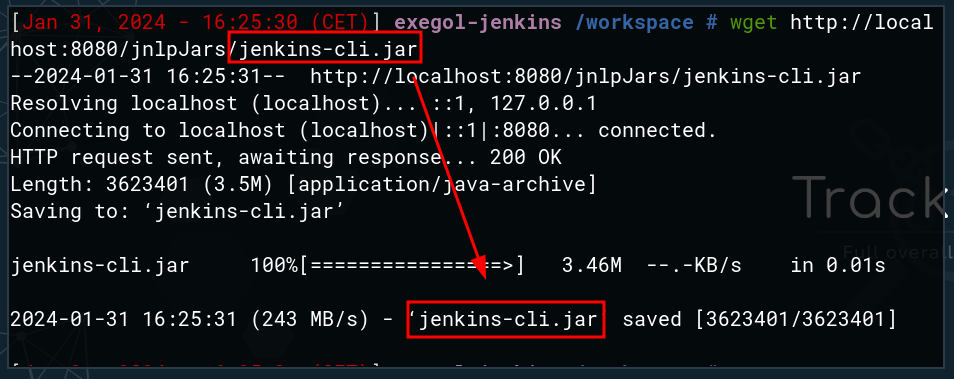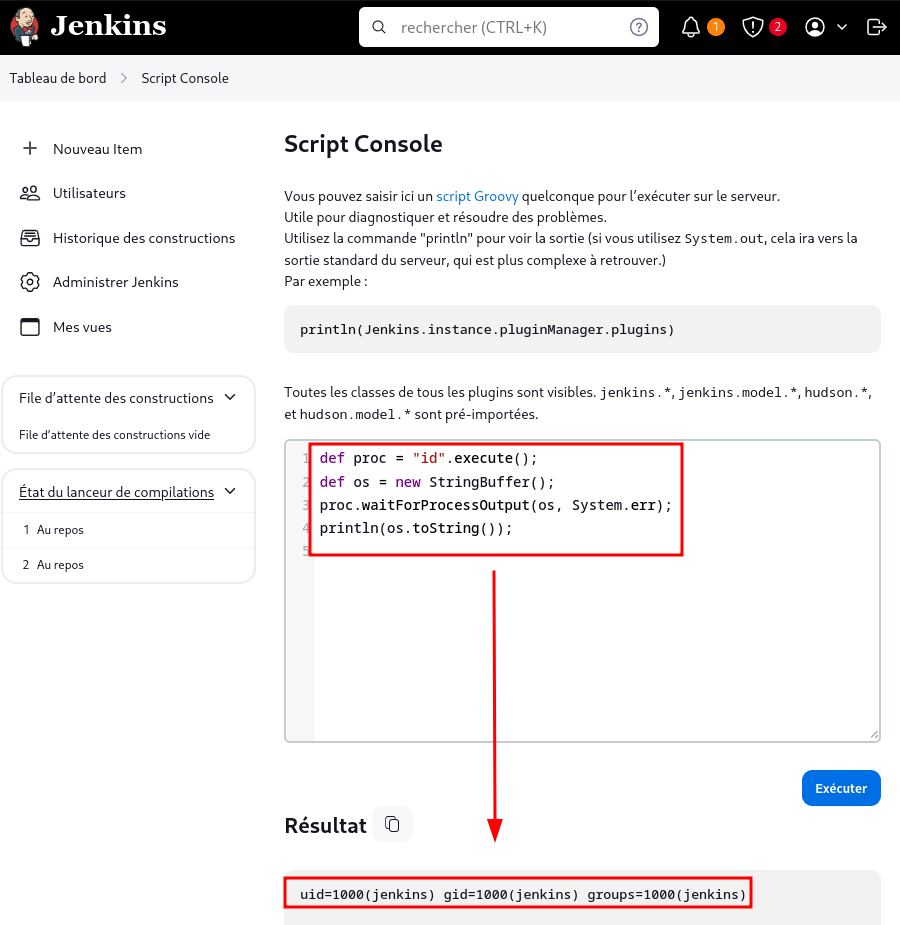Compromise Jenkins reading files CVE-2024-23897

💣 From a minor verbose error to full compromise
The origin
On January 25, 2024, researchers from Sonar published 2 vulnerabilities related to the leader in open-source continuous integration and continuous deployment (CI/CD) software: Jenkins.
Jenkins plays a central role in automating software development processes for a large part of the industry, holding about 44% market share in 2023. The potential impact of these vulnerabilities is therefore significant.
The most concerning flaw, identified as CVE-2024-23897, allows unauthenticated attackers to read limited data from arbitrary files and “read-only” authorized attackers to access an entire file on the Jenkins server.
Two vulnerabilities are explained:
- The vulnerability CVE-2024-23897:
- A CVSS score of 9.8/10 (quite concerning) 😮
- An anonymous attacker can read a limited portion of local files.
- The vulnerability CVE-2024-23898:
- A CVSS score of 8.8/10
- Allows an attacker to execute arbitrary CLI commands by enticing a victim to click on a malicious link (CSRF).
In short
The most problematic vulnerability is the first one: CVE-2024-23897
- Unauthenticated attackers can read the first lines of local files present on the server.
- Authenticated “read-only” attackers can access the entire files.
- This vulnerability can be converted into RCE in several ways:
- By reading files containing the default password
- By elevating privileges to admin
- By reading an SSH key
- By retrieving secrets on the machine
- Etc…
Jenkins provides other means to obtain direct command execution on its blog: https://www.jenkins.io/security/advisory/2024-01-24/
Exploitation
Exploiting the first vulnerability is quite straightforward.
Vulnerable docker
It’s possible to test with vulnerable versions via Docker.
| |
Environment
First, retrieve the Jenkins utility jenkins-cli.jar via command line.
| |

Vulnerable code
The code below details the vulnerable code.
The function checks if the argument starts with the @ character, and if so, reads the file at the path following the @ and creates a new argument for each line.
| |
This means that if an attacker can control an argument, they can extend it to a number of arguments from an arbitrary file on the Jenkins instance.
Hence, exploiting the expandAtFiles() function of arg4j displaying a verbose error when attempting to read the file is possible.
Arbitrary reading…
The command below allows an unauthenticated user to retrieve the first line of the file /var/jenkins_home/secrets/initialAdminPassword
| |

…to RCE
Thus, it’s possible to retrieve the default administrator password if it hasn’t been changed.

Then, it’s possible to log into /script to execute our commands.

The code below allows the execution of the /bin/id command.
| |
To conclude, a demonstration is available just below!
Recommended actions
The Jenkins security team has corrected CVE-2024-23897 by adding a secure configuration disabling the expandAtFiles feature.
The following line is removed:
| |
And replaced by the following lines:
| |
The second vulnerability CVE-2024-23898, a direct consequence of the first, has been fixed by adding an origin check to the WebSocket mechanism.
Patch quickly !
Demonstration
Demonstration with the elements detailed above.
 TRACKFLAW
TRACKFLAW